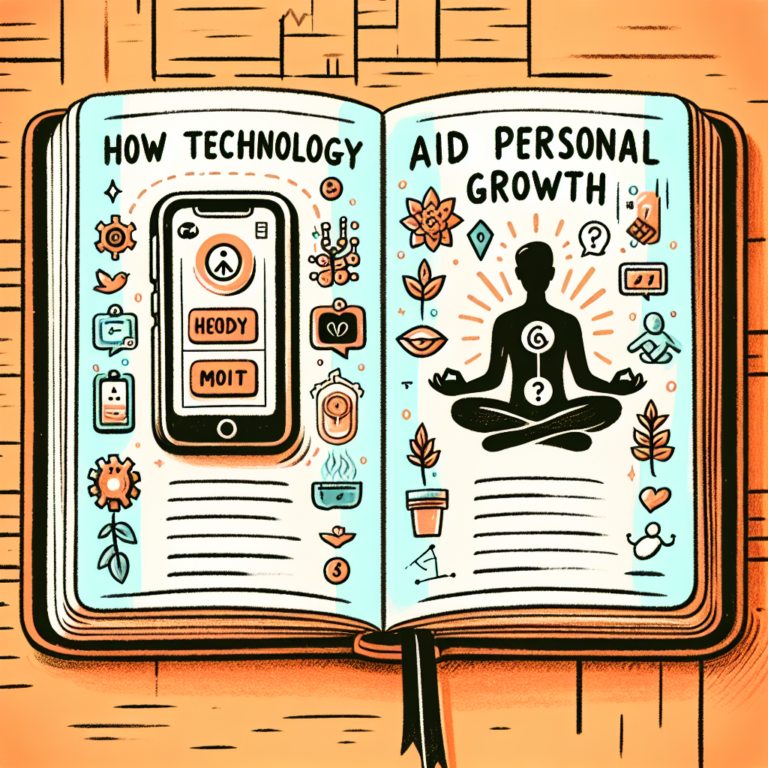How Have Individuals Overcome Extreme Adversity?
In the face of unimaginable challenges, individuals have displayed remarkable resilience and perseverance to overcome extreme adversity. Whether it be the loss of a loved one, a life-altering illness, or a devastating setback, these individuals have found the strength within themselves to rise above their circumstances and forge a new path forward. Through sheer determination and unwavering determination, they have shown us that even in the darkest of times, there is always a glimmer of hope and the potential for an inspiring comeback. Join us as we explore the incredible stories of these extraordinary individuals and uncover the transformative power of the human spirit.
Psychological Resilience

Cognitive Reframing
One important aspect of psychological resilience is cognitive reframing. This involves changing the way you perceive and interpret stressful or challenging situations. Instead of seeing setbacks as insurmountable obstacles, reframing allows you to view them as opportunities for growth and learning. By shifting your mindset and adopting a more positive and realistic perspective, you can effectively cope with adversity and develop greater resilience.
Emotional Regulation
Emotional regulation plays a crucial role in psychological resilience. It involves the ability to recognize and manage your emotions in healthy and adaptive ways. By practicing emotional regulation techniques such as deep breathing, mindfulness, and expressing emotions through creative outlets, you can effectively cope with stress and maintain a sense of emotional well-being even in the face of adversity.
Social Support
Social support is a vital component of psychological resilience. Having a strong network of supportive and caring individuals can greatly enhance your ability to bounce back from challenging situations. Through the connection and empathy provided by friends, family, mentors, and support groups, you can find comfort, encouragement, and valuable advice that can help you navigate through adversity with greater strength and resilience.
Physical Endurance
Physical Training and Conditioning
Physical endurance is an essential aspect of resilience. Regular physical training and conditioning not only improve your physical health but also boost your mental and emotional well-being. Engaging in activities such as cardiovascular exercises, strength training, and flexibility exercises can enhance your overall fitness levels, increase your energy levels, and improve your resilience to physical and mental stressors.
Mental Toughness
In addition to physical training, mental toughness is crucial for building physical endurance. Mental toughness involves developing the mental resilience to persevere through challenging situations, even when faced with physical discomfort or fatigue. By cultivating mental toughness through visualization exercises, positive self-talk, and setting challenging but attainable goals, you can push past your limits and achieve greater levels of physical endurance.
Holistic Health Approach
Taking a holistic approach to health is key to building physical endurance and resilience. This includes maintaining a balanced diet, getting enough sleep, managing stress, and incorporating rest and recovery days into your physical training routine. By taking care of your overall well-being, you can optimize your physical performance, enhance your ability to endure physical challenges, and build resilience in the face of adversity.
Goal Setting and Persistence
Setting Realistic Goals
Setting realistic goals is an essential aspect of building resilience. By setting attainable and measurable goals, you can create a roadmap for success and cultivate a sense of purpose and direction. It’s important to ensure that your goals are challenging enough to inspire growth but not so overwhelming that they become unattainable. By setting realistic goals, you can maintain motivation and persistence, even when faced with setbacks or obstacles.
Creating Action Plans
Once you’ve set your goals, creating action plans is crucial for staying on track and building resilience. Break down your goals into smaller, manageable tasks and devise a timeline for completing them. Having a clear plan of action provides structure and helps you stay focused and motivated, even when faced with distractions or challenges. By consistently working towards your goals and ticking off tasks on your action plan, you build resilience through a sense of accomplishment and progress.
Developing Grit and Tenacity
Grit and tenacity are key qualities for building resilience. Grit involves perseverance and passion for long-term goals, while tenacity is the ability to keep going despite setbacks and obstacles. By developing grit and tenacity, you cultivate the mental strength and determination to overcome challenges and bounce back from failure. This mindset fosters resilience and empowers you to persist on your journey towards success, even when faced with adversity.
Adaptive Coping Strategies
Problem-Solving Skills
Developing strong problem-solving skills is crucial for building resilience. When faced with difficult situations, having the ability to analyze problems, generate potential solutions, and implement effective strategies can empower you to overcome challenges and adapt to new circumstances. By honing your problem-solving skills, you become better equipped to navigate through adversity and build resilience in the process.
Seeking Professional Help
Sometimes, overcoming extreme adversity requires seeking professional help. Licensed therapists, counselors, or coaches can provide valuable guidance and support when facing challenging circumstances. They can help you develop effective coping strategies, process difficult emotions, and navigate through complex situations. Seeking professional help is a proactive step towards building resilience and ensuring your mental and emotional well-being.
Learning from Failure
Learning from failure is a crucial aspect of adaptive coping and resilience. Instead of viewing failure as a sign of personal inadequacy, reframing failure as an opportunity for growth and learning can enhance your resilience. By reflecting on your failures, identifying lessons learned, and making adjustments for future endeavors, you can develop a growth mindset and build resilience through the accumulation of knowledge and experience.
Positive Thinking and Mindset
Optimism and Hope
Maintaining optimism and hope is vital in building resilience. Optimism is the belief that positive outcomes are achievable, while hope provides the motivation and energy to pursue these outcomes even in challenging times. By cultivating optimism and hope, you develop a positive mindset that allows you to face adversity with resilience, perseverance, and an unwavering belief in the possibility of a brighter future.
Self-Affirmation
Self-affirmation is a powerful tool for building resilience and maintaining a positive mindset. By practicing positive self-talk and regularly reminding yourself of your strengths, capabilities, and accomplishments, you can cultivate self-confidence and resilience. Self-affirmation helps counter negative self-perceptions and enhances your ability to bounce back from adversity with self-assurance and determination.
Gratitude and Appreciation
Practicing gratitude and appreciation is another effective strategy for building resilience. By focusing on the positive aspects of your life and expressing gratitude for the things you have, you develop a greater sense of resilience and contentment. Gratitude helps shift your mindset towards positivity and enhances your ability to find joy and meaning, even in the face of challenges and adversity.
Utilizing Support Networks
Family and Friends
Leveraging the support of family and friends is crucial for building resilience. These individuals provide a stable and nurturing foundation of love, encouragement, and understanding. By sharing your challenges and seeking their guidance, you can gain valuable perspectives, advice, and emotional support, which can greatly enhance your resilience and ability to overcome adversity.
Mentors and Role Models
Having mentors and role models can significantly boost your resilience. Mentors offer valuable guidance, wisdom, and expertise based on their own experiences, while role models inspire and motivate you through their accomplishments and resilience. By seeking out mentors and role models who align with your aspirations and values, you can learn from their successes and setbacks, build resilience, and cultivate a mindset of continuous growth.
Support Groups and Organizations
Support groups and organizations provide a unique sense of community and understanding. These groups consist of individuals who share similar experiences, challenges, or goals, providing a safe and supportive space to express emotions, seek advice, and receive validation. By connecting with support groups and organizations related to your specific circumstances, you can tap into a network of individuals who can offer empathy, encouragement, and practical tools for building resilience.
Finding Purpose and Meaning
Identifying Personal Values
Identifying and aligning with your personal values is essential for building resilience and finding purpose and meaning. Your values define what is most important to you and serve as guiding principles in decision-making and navigating through challenges. By living in alignment with your values, you create a sense of purpose, which enhances your resilience and provides a solid foundation for facing adversity with determination and conviction.
Pursuing Passion and Meaningful Work
Pursuing your passions and engaging in meaningful work is key to building resilience. When you are engaged in activities that align with your interests and values, you derive a sense of fulfillment and purpose, which enhances your ability to bounce back from setbacks and challenges. By pursuing your passions and engaging in meaningful work, you cultivate resilience through a sense of joy, satisfaction, and personal growth.
Spiritual and Existential Perspectives
Exploring spiritual and existential perspectives can provide profound insights and support in building resilience. Connecting with your spirituality, whether through religious practices, meditation, or mindfulness, can offer a sense of peace, purpose, and interconnectedness. By exploring existential questions about life’s meaning and purpose, you deepen your understanding of yourself and the world, fostering resilience and a greater sense of acceptance in the face of adversity.
Adapting to Change
Flexibility and Adaptability
Flexibility and adaptability are crucial skills for building resilience. In a rapidly changing world, being able to adjust to new circumstances, embrace uncertainty, and remain open to different possibilities is essential. By cultivating flexibility and adaptability, you enhance your ability to navigate through unexpected challenges, explore new opportunities, and build resilience through your capacity to embrace change.
Embracing Ambiguity and Uncertainty
Embracing ambiguity and uncertainty is an important mindset in building resilience. Accepting that life is unpredictable and that not everything can be controlled allows you to let go of the need for certainty and embrace the unknown. By embracing ambiguity and uncertainty, you foster resilience by developing the capacity to navigate through complex and unpredictable situations with greater ease and adaptability.
Life Skills Development
Developing essential life skills is crucial for building resilience and adapting to change. These skills include effective communication, problem-solving, decision-making, time management, and stress management. By continually improving and honing these life skills, you enhance your ability to navigate through various life challenges, make informed choices, and build resilience in the face of adversity.
Perspective and Acceptance
Acceptance of Past and Present
Accepting the realities of your past and present circumstances is an essential aspect of building resilience. Acknowledging the challenges you have faced, the mistakes you have made, and the limitations you may have allows you to release any feelings of guilt, shame, or regret. By practicing self-acceptance and accepting the present moment as it is, you can cultivate resilience and free up mental and emotional energy to focus on moving forward and building a brighter future.
Shifting Perspective and Reflecting
Shifting perspective and reflecting on your experiences is vital for building resilience. By intentionally altering your perception of challenging situations and looking for valuable lessons or silver linings, you can cultivate a mindset of growth and resilience. Reflecting on past experiences also provides opportunities for self-discovery and self-awareness, which can enhance your ability to cope with adversity and bounce back stronger.
Self-Compassion and Forgiveness
Practicing self-compassion and forgiveness is a powerful way to build resilience. Treat yourself with kindness, understanding, and forgiveness when facing setbacks or mistakes. By nurturing a compassionate attitude towards yourself, you develop resilience through self-care, self-acceptance, and the ability to bounce back from failure with increased self-belief and determination.
Inner Strength and Resilience
Self-Efficacy and Self-Belief
Cultivating self-efficacy and self-belief is crucial for building resilience. Self-efficacy involves believing in your own abilities to successfully accomplish tasks and achieve desired outcomes. By developing a strong sense of self-belief, you enhance your resilience through increased self-confidence, motivation, and the willingness to persist in the face of adversity.
Building Inner Strength
Building inner strength is a continuous process of self-improvement and personal growth. It involves developing key qualities such as perseverance, adaptability, courage, and self-discipline. By undertaking challenges, stepping out of your comfort zone, and consistently pushing your limits, you can build inner strength and resilience, empowering you to face adversity head-on and navigate through life’s obstacles with confidence and grace.
Resilience Building Techniques
Resilience building techniques, such as mindfulness, journaling, and positive affirmations, can be powerful tools in developing greater inner strength and resilience. Mindfulness practices, such as meditation or deep breathing exercises, enhance self-awareness, reduce stress, and foster a sense of calmness and clarity. Journaling allows for self-reflection and emotional processing, while positive affirmations help rewire negative thought patterns and cultivate a more resilient mindset. By integrating these techniques into your daily routine, you can actively cultivate inner strength and resilience.






